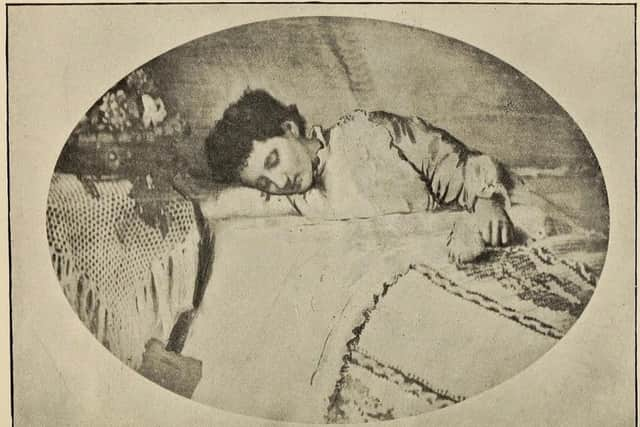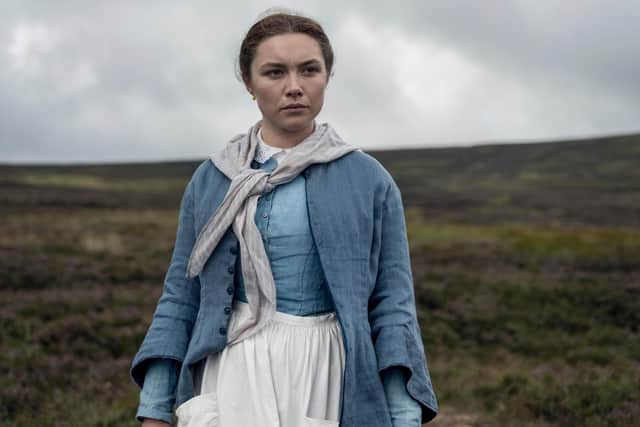The Wonder: The mysterious case of the Scottish 'fasting girl' who lived on water alone
Christina Marshall, from the village of Chapelton near Strathaven in South Lanarkshire, became known as a ‘fasting girl’ – a worldwide phenomenon that sparked intense pubic interest during the Victorian era when science became pitted against religion.
Similar cases around the world, from Brooklyn to Belgium, were linked to claims of miracle making and religious ecstasy, with the ability to go without food considered by some to be a sign of divine grace. Suspicions of fraud and secret feeding often emerged.
Advertisement
Hide AdAdvertisement
Hide AdNow, as the phenomenon of the Fasting Girls is explored in new Netflix film The Wonder, based on the novel of the same name by Emma Donoghue, details of the Lanarkshire case have come to light with an account of Christina’s condition reported in The Lancet in May 1881. She was 13 at the time.
Dr Dougall, who described a “rather mysterious case”, first saw the patient in July 1880 after she contracted a cold that failed to lift, with a “great change” coming over her by autumn.
The report said: “She now seldom spoke, almost never, except when questioned and she maintained a stolid and morose countenance. She became very adverse to all types of food, extremely constipated and very sleepless. I saw all these symptoms gradually, but firmly and surely establish themselves as part of her."
By the time the report appeared, Christina had not left her bed for more than four months.
“Eighteen weeks ago last Sabbath, she took a small piece of fruitcake,” the report said. "Since then, her parents distinctly and firmly asserted that no food of any distinction has been taken by her. “


Interest in her case sparked a running commentary on her condition. Within a week of The Lancet piece, a breakthrough in her condition was reported when Christina “reluctantly swallowed” two teaspoons of milk on threat of being taken to an asylum. Drops of beef tea and cream followed.
However, a month later, the Edinburgh Evening News reported: “The Strathaven fasting girl still expresses her reluctance to take food. She cries for a long time. Much sympathy is felt for her parents.”
Intense interest surrounded Fasting Girl cases, not least given the death of Sarah Jacob in rural Carmarthenshire in 1869, who reportedly lived without food or drink for two-and-a-half years and who received many visitors as claims of a miracle spread.
Advertisement
Hide AdAdvertisement
Hide AdUltimately, Jacob’s parents were imprisoned for manslaughter after it emerged they declined to feed their daughter given the distress it caused.


The Jacob prosecution was reported in The Scotsman. An article in May 1869 said: “A false miracle has been laid bare. Primarily, the parents are the authors of the whole mischief and but for them the girl might have been saved at the last moment.”
Meanwhile, Dr Dougall carefully vouched for the reputation of Christina Marshall’s father, a roadman who raised six children following the death of their mother, and his second wife.
He wrote: "I believe the honesty and integrity of their characters to be above the fairest hint of suspicion.”
Christina Marshall died on April 18, 1882. Dr Dougall reportedly expected her death for two or three weeks. Talk of a miracle was slight in Chapelton.
Comments
Want to join the conversation? Please or to comment on this article.